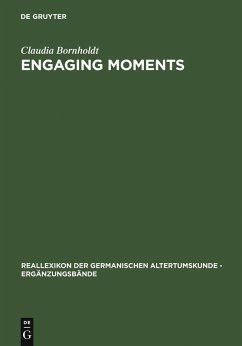This book presents the first collection of the earliest West Germanic bridal-quest narratives together with a comparative study of them. In contrast to earlier studies, the author locates the origin of this narrative tradition in the oral and written Germanic literary tradition, a result that leads to a re-assessment of the genesis of vernacular German and Scandinavian literature. The chapters deal in chronological order with the Latin chronicles of the Germanic peoples and with the early Latin and vernacular literature in Germany and Scandinavia.
Dieser Download kann aus rechtlichen Gründen nur mit Rechnungsadresse in A, B, BG, CY, CZ, D, DK, EW, E, FIN, F, GR, HR, H, IRL, I, LT, L, LR, M, NL, PL, P, R, S, SLO, SK ausgeliefert werden.
"Through her sound scholarship, dept interpretion, and cogent argumentation, she has contributed significantly to medieval narratology." Rosemarie Thee Morewedge in: Journal of English and Germnaic Philology 1/2008
"The author is to be congratulated on revisiting older theories on the development and origin of bridal quest narratives with a keen eye for nuance in a wide array of medieval texts and for ideological tendencies and lacunae in scholary interpretations of the late nineteenth and twentieth century." Ulrike Wiethaus in: Colloquia Germanica 1/2007
"The author is to be congratulated on revisiting older theories on the development and origin of bridal quest narratives with a keen eye for nuance in a wide array of medieval texts and for ideological tendencies and lacunae in scholary interpretations of the late nineteenth and twentieth century." Ulrike Wiethaus in: Colloquia Germanica 1/2007

